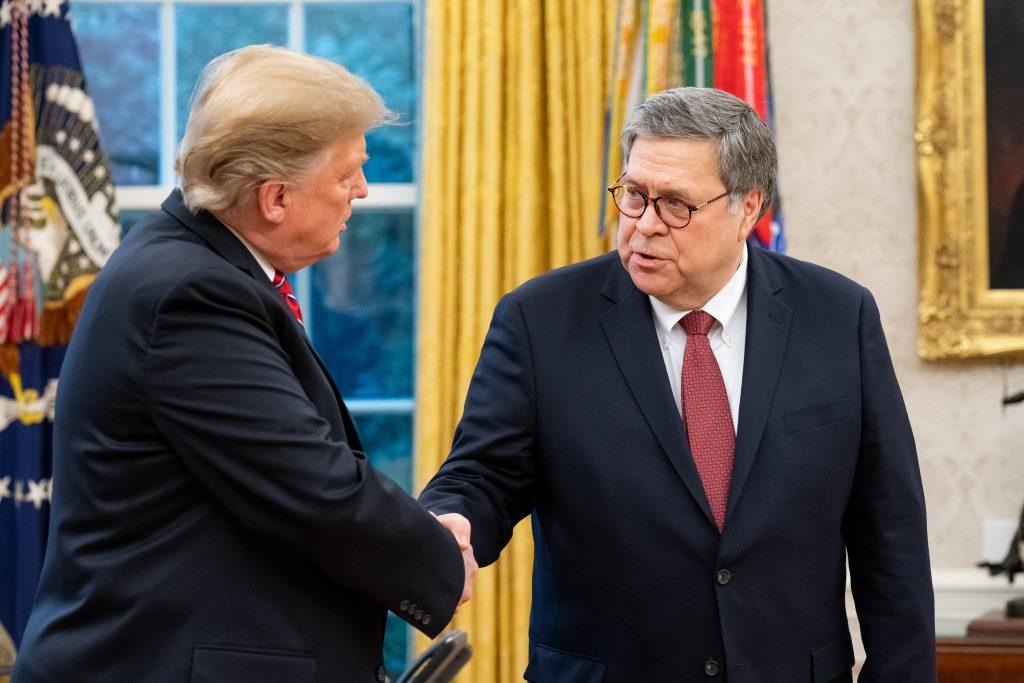Federal Appeals Court to Hear Arguments on 2018 Wire Act Opinion Later This Month
Posted on: June 7, 2020, 02:11h.
Last updated on: June 7, 2020, 03:27h.
A federal appellate court will hear arguments later this month on the case between the New Hampshire Lottery Commission and the federal government over the interpretation of the Wire Act.

Last week, the First Circuit Court of Appeals announced it will hold a teleconference on the case on June 18, with lawyers from both sides presenting their cases. The remote conferencing is because of restrictions still in place because of the COVID-19 crisis.
The Wire Act is a nearly 60-year-old federal law that prohibits certain types of interstate gambling transactions over a wire communication device, such as a telephone or a computer.
In 2002, the Fifth Circuit Court of Appeals affirmed a lower court’s ruling that the act was exclusive to sports betting, and while there were efforts in Congress to amend the law, a Department of Justice opinion in 2011 stated interstate gambling transactions that were not sports-related were not in purview to the Wire Act. That opinion led to state lotteries allowing online sales.
The Department of Justice’s Office of Legal Counsel (OLC) issued a new opinion in November 2018 that was made public two months later. That new opinion said only one clause pertained to sports betting, which Justice officials claim means the other clauses could be applied to other forms of betting.
The New Hampshire Lottery challenged that opinion in court. A year ago, a New Hampshire federal judge ruled in the lottery’s favor, saying the law is limited only to sports betting.
The case is officially titled New Hampshire Lottery Commission; NeoPollard Interactive LLC; Pollard Banknote Ltd. versus William Barr; Attorney General, US Department of Justice; United States. NeoPolalrd is New Hampshire’s lottery vendor.
DOJ Says Opinion Just Advice for Now
In a reply filing to the appellate judges last month, Principal Deputy Assistant Attorney General Ethan P. Davis said that the November 2018 opinion did not specifically mention how the law applies to state lotteries and their vendors. In addition, Rod Rosenstein, then the Deputy Attorney General, told Justice staffers not to investigate state lotteries until officials could make that determination.
He also added that the opinion, for now, is just “OLC’s internal advice.”
When an agency takes action relying upon OLC’s advice, that action generally is reviewable if ‘final,’” Davis wrote. “In that instance, however, it is the agency action that is reviewed, not OLC’s opinion.”
Davis, though, also claims Barbadoro erred by ruling the Wire Act pertains only to sports betting and that the plaintiffs do not offer an explanation why it should only affect sports betting.
States, Groups Take Interest in Case
Because of the impact the case may have on lotteries and multi-state games like Powerball and Mega Millions, a number of states, vendors, and others have filed amicus briefs to present information to the courts.
Supporting New Hampshire’s case are 19 states and lottery commissions, International Game Technology Inc., Association of Gaming Equipment Manufacturers, and the iDevelopment and Economic Association.
“Barr and the Department of Justice claim to recognize ‘the widespread and longstanding use of lotteries by sovereign States to fund their public objectives,’” 18 states (Pennsylvania filed separately) wrote in their brief in March. “But their actions show that they do not comprehend what is at stake if this Court reinstates the DOJ’s 2018 Opinion, Reconsidering Whether the Wire Act Applies to Non-Sports Gambling. Doing so would cause governments nationwide a catastrophic loss of revenue, precipitating the reduction or elimination of vital public services.”
The Justice Department, too, has received support from third-party groups Coalition to Stop Internet Gambling and the National Association of Convenience Stores.
The groups claim states struggle to keep children from gambling online.
“Online gaming has devastating effects on the vulnerable individuals whom CSIG strives to protect and on the national network of convenience stores whom NACS represents,” the groups wrote in their brief filed in December. “CSIG and NACS therefore have a strong interest in ensuring that the Wire Act be correctly interpreted as prohibiting not only sports-related gaming, but non-sports-related gaming as well.”
Related News Articles
DC Resident Files Suit Over Sole-Sourced Sports Betting Contract Awarded to Intralot
Most Popular
FTC: Casino Resort Fees Must Be Included in Upfront Hotel Rates
Genovese Capo Sentenced for Illegal Gambling on Long Island
NBA Referees Expose Sports Betting Abuse Following Steve Kerr Meltdown
UPDATE: Former Resorts World & MGM Grand Prez Loses Gaming License
Most Commented
-
UPDATE: Whiskey Pete’s Casino Near Las Vegas Closes
— December 20, 2024 — 30 Comments -
Caesars Virginia in Danville Now Accepting Hotel Room Reservations
— November 27, 2024 — 9 Comments -
UPDATE: Former Resorts World & MGM Grand Prez Loses Gaming License
— December 19, 2024 — 8 Comments -
FTC: Casino Resort Fees Must Be Included in Upfront Hotel Rates
— December 17, 2024 — 7 Comments
















No comments yet